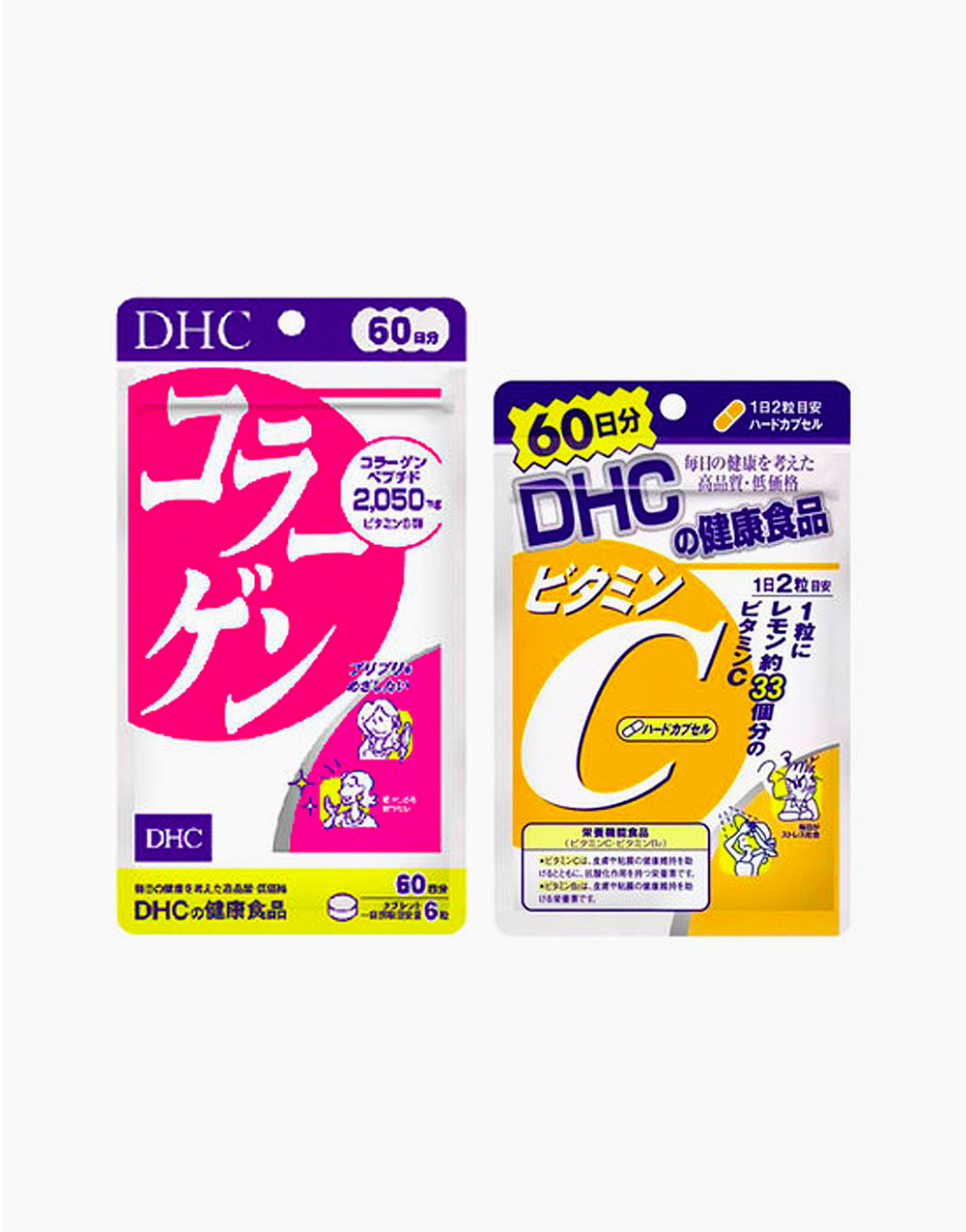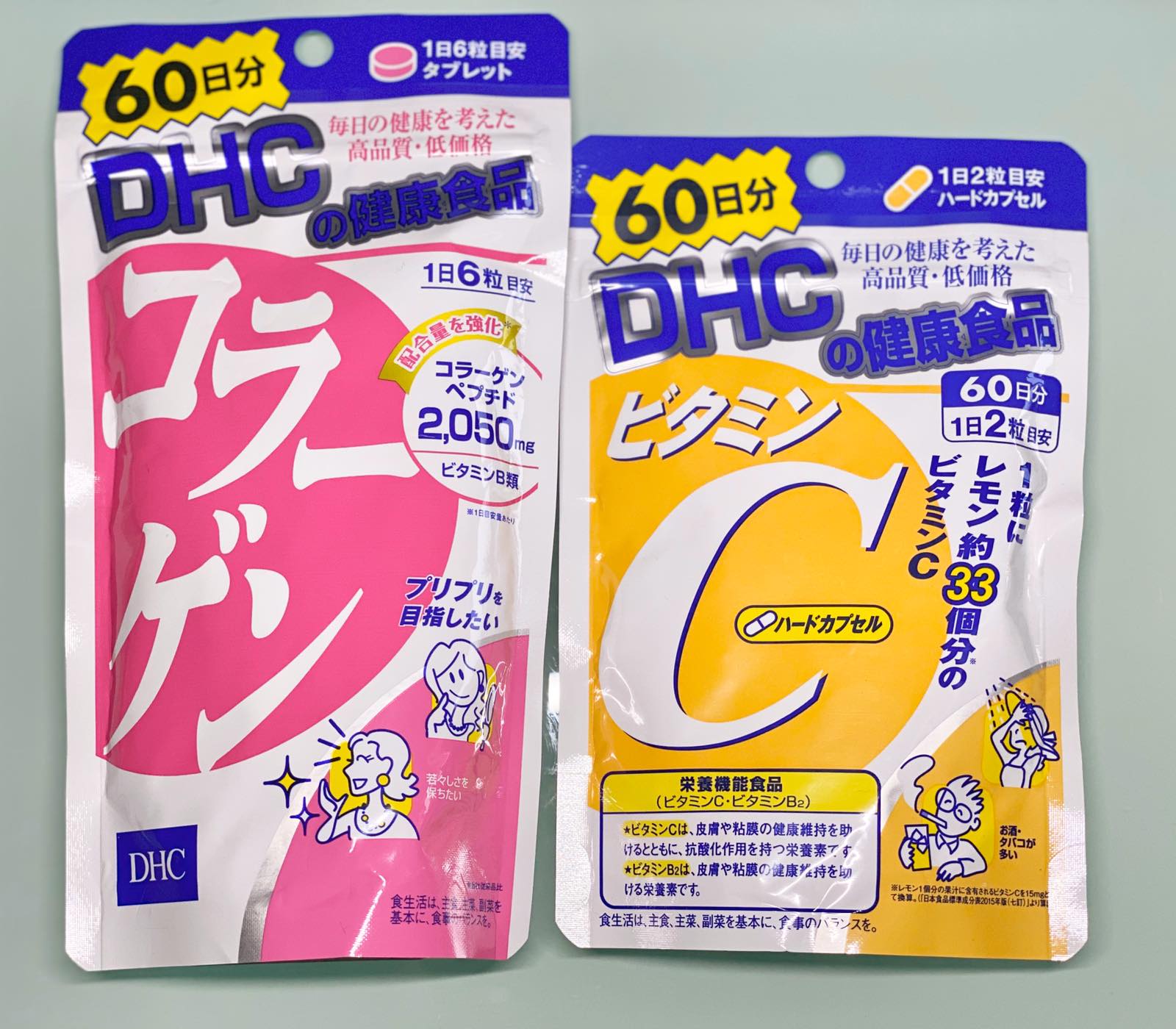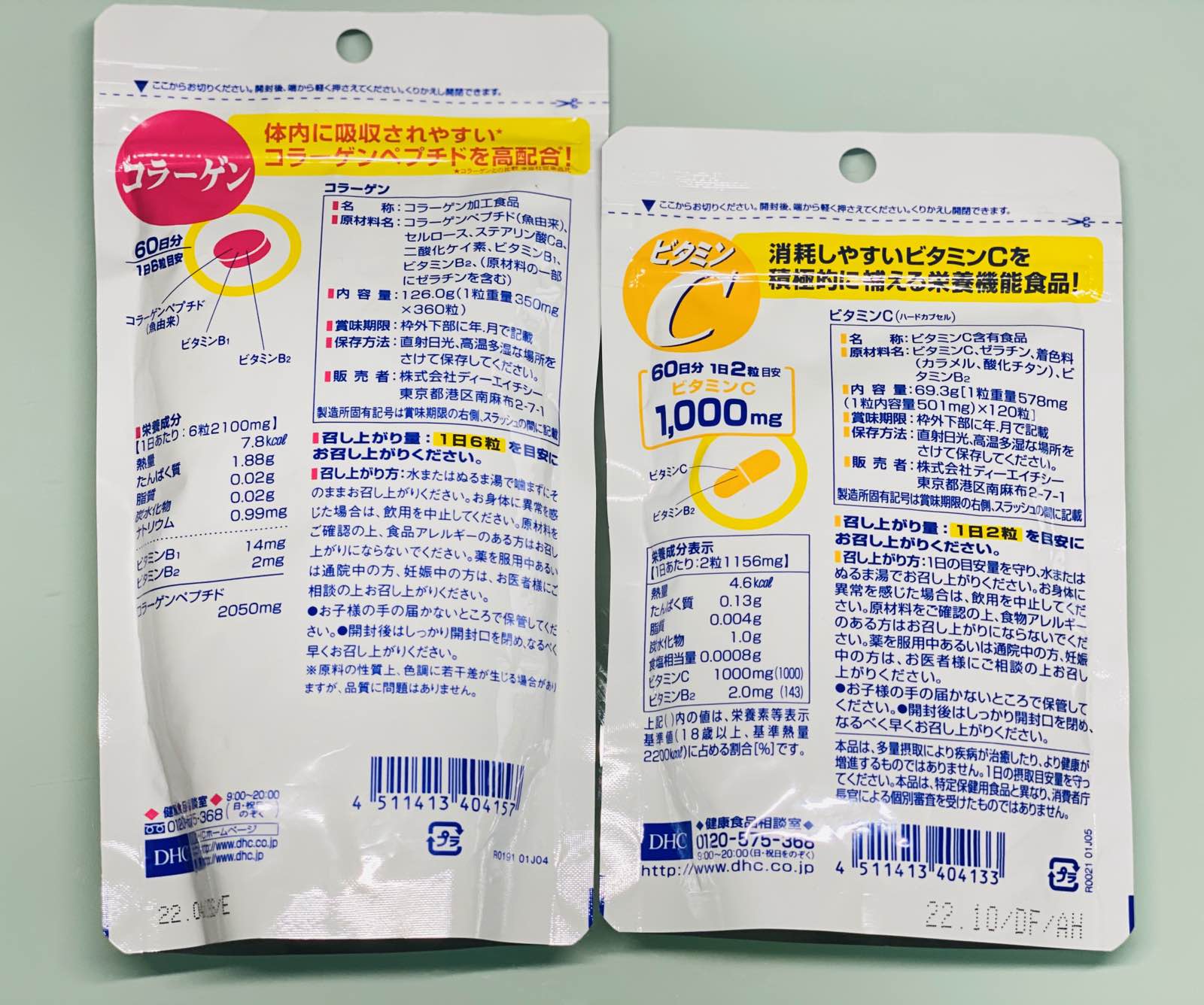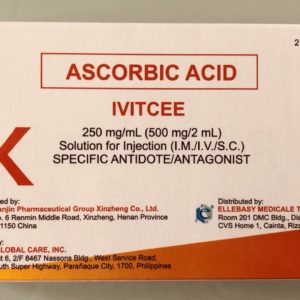Description
DHC BRAND COLLAGEN 360PCS. MADE IN JAPAN 2,050MG PER TABLET
Direction: 2 tablets 3 times a day
DHC BRAND VITAMIN C 120 PCS. MADE IN JAPAN 1,000MG PER CAPSULE
Direction: 1 capsule 2 times a day
1 SET IS GOOD FOR 2 MONTHS
Our skin is made up of roughly 75% collagen, a protein that is responsible for skin’s elasticity. This protein is also a major component of our bones and holds our joints together, too. So you can imagine the effect it has on the body once collagen production slows down in our 20s: skin that is less taut and springy, with more fine lines and wrinkles; bones that are weaker; and knees that are creakier. More people are becoming aware of the importance of collagen and are looking for ways to boost its production. In fact, Women’s Health magazine reports that collagen supplements are Googled as much as the best moisturizer! From bone broths to “plant-based collagen” to powders and supplements to moisturizers, collagen is clearly becoming a lucrative niche in the anti-aging business.
Collagen Benefits Research on collagen supplement benefits aren’t conclusive, and expert opinion is divided when it comes to how (or if) supplements work—while some say the collagen in supplements never makes it into your bloodstream as it is broken down by your gut, there are others who believe that regular collagen supplement consumption may be beneficial to your health. The limited research available suggests that collagen supplements may be good for you in more ways than one:
Collagen for skin Some research has demonstrated that collagen supplementation may have some positive effects on skin. One small 2014 study published in Skin Pharmacology and Physiology found that skin elasticity improved in women who were given collagen over an eight-week period. Similarly, a 2015 study found that skin elasticity improved in post-menopausal women who took collagen. It might seem logical to apply collagen-infused products to your skin to make up for collagen loss, but supplements—not topical treatments—may be a better bet. Moisturizers with collagen don’t magically boost the collagen in your skin; that soft, silky feeling you get after slathering on a product may be from other hydrating ingredients. Rather than reaching for skincare products infused with collagen, you might be better off using products that are infused with Vitamin C: A review published in the journal Nutrients suggests that this vitamin is crucial in collagen synthesis.
Collagen for joints A study published in the Journal of Agricultural and Food Chemistry found that subjects who took collagen for 70 days experienced a significant reduction in joint pain. Whether this is due to the stimulation of collagen production in joints or the reduction of inflammation is yet to be determined. But it’s great news for those with degenerative joint disorders like osteoarthritis. Collagen for bones. More studies need to be conducted, but some studies suggest that collagen may increase bone mineral density. Collagen for heart health. One 2017 study published in the Journal of Atherosclerosis and Thrombosis suggests that collagen may be helpful in the prevention and treatment of heart disease.
Collagen for hair Collagen is also a key component of hair, helping prevent hair loss and promoting hair growth. Aging and the consequent breakdown of collagen may thus lead to limper locks. Taking collagen supplements may help keep hair lustrous and moisturized, but again, studies are inconclusive. But if you’re going to take a collagen supplement anyway, then you may also get this added benefit!
Beyond Collagen While collagen may have a host of benefits, you shouldn’t rely on it for optimum health. There’s nothing quite like a healthy lifestyle to keep you looking youthful. Make sure you have a balanced diet rich in Vitamin C (found in citrus fruits), Vitamin A (yellow and orange vegetables), omega-3 fatty acids (fatty fish like salmon), and lean protein to help stimulate your natural collagen production. Also avoid the things that can damage collagen and hasten aging: sunlight (UV exposure accelerates collagen damage by as much as 20%), sugar (too much of it stimulates the production of collagen-damaging enzymes, not to mention its other negative effects on your health), smoking (quitting for three months can minimize continued collagen damage but there’s no undoing the damage that’s already been done), and pollution (all the dust and grime of an urban environment can be damaging to skin). Simply put, all the collagen supplement benefits are for naught if you’re living an unhealthy lifestyle.





